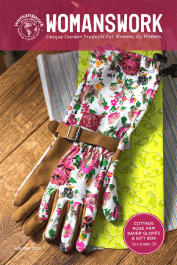designed for the way women work.
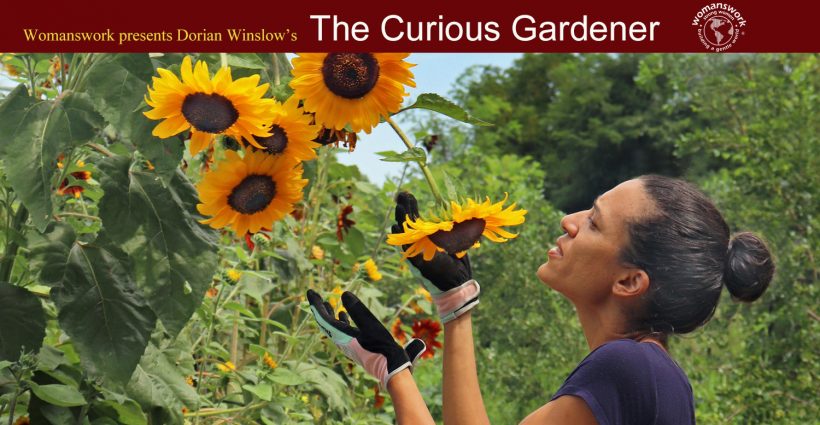
Natasha Bowens Blair of Native Mountain Farm and Soul Street in Frederick Maryland
Category: Presenting "The Curious Gardener"
Natasha Bowens Blair didn’t believe you could grow plants in a meaningful way that weren’t edible or medicinal until she experienced the joy of growing and arranging flowers at Native Mountain Farm outside of Frederick, Maryland.
The farm, situated on a lush piece of landscape at the base of South Mountain in Boonsboro, is operated by Natasha and her mother-in-law Julie Blair on land Julie and her late husband Billy purchased 32 years ago.
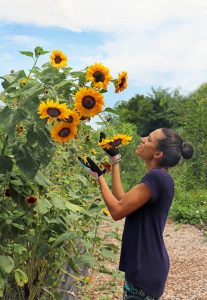
Natasha had been farming on other peoples’ land and thinking about a book she wanted to write when she met her husband Crosby Blair. The next 8 years found the two of them going on a book tour, getting married, having two daughters (now ages nearly 3 and 4), and Natasha signing on 3 years ago to join Julie in planting the seeds of a family farm.
The book Natasha wrote, published by New Society Publishers, is called The Color of Food. It started as a quest to answer some persistent questions Natasha had as a brown woman farming. As she looked around she wondered why, at a time when it was becoming ‘hip’ to take up farming, there was so little representation among farmers of color. She wondered if the complicated history of black people and farming, tied to the legacy of slavery, was suppressing interest in farming among people of color, or whether there were black farmers out there whose voices weren’t being heard.
After fundraising she went on a 6 month long book tour across the country. It was a personal journey which led to living out of her car at times. She wanted to get answers, and her findings had a big impact on her.
What she discovered was a whole community of people of color gardening. “I realized many farmers of color are farming as an act of resistance. A revolutionary act,” says Natasha. “They are saying, ‘We’re still here and we’re as much a part of this as anyone.”
Natasha wanted to collect these stories and was honored to highlight their voices.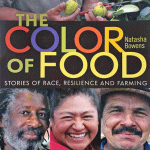
After the book was published Natasha took to the road again, a little unexpectedly, traveling and being interviewed by Bill Moyers and others. But she wasn’t farming anymore and she began to feel the tug of the land. She found she wanted to put her own roots down.
The plan she and Julie Blair agreed to was they would grow everything in a sustainable way, without machinery or greenhouses. They brought their flowers to farmers’ markets, florists and a local co-op in the area, but over time they found that flower arranging events were the best and most enjoyable way to sell their flowers. Partnering with local wineries they host Sip and Stem events. The goal is to host as many as 15 of these events a year, twice a week from spring to fall—when things get back to normal.
The flowers they grow are not the obvious choices. “We picked flowers that were funky and resilient,” says Natasha, “like goldenrod, milkweed, amaranth and a variety of rudbeckia’s,” which is the state flower of Maryland. “We use salvias, mint, basil and monarda for the greens.” They also grow dahlias because who can resist dahlias?
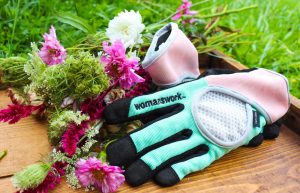
She also became involved with The Public Housing Authority in Frederick, where she served senior women in a program called “Bloom Where You’re Planted”. She regularly brought in bunches of flowers for a flower therapy program organized by a local life coach.
After Covid-19 caused the cancelation of events in the spring Natasha continued to donate the flowers anyway. She hired local teens to help bundle them into smaller bouquets and deliver them to those same women in public housing.
Frederick is a town on the move says Natasha. “It could be the next Asheville, with lots of new businesses moving in to town,” she says.
A recently formed non profit called Soul Street holds pop up markets in town that showcase black owned businesses. Native Mountain Farm has been a part of two recent pop ups organized by Soul Street, and Natasha joined their Board of Directors. “Just this year I have wanted to get back to the community a little more. With Black Lives Matter my book came back into conversations and I want to be a part of that conversation again,” says Natasha.


